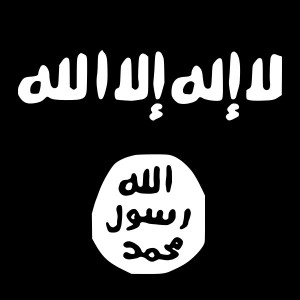Few recognize “ISIS” as a successful brand, but it is. We just see their despicable beheadings, destruction of ancient ruins in Palmyra, and all the other grotesque forms of brutality and violent extremism. The ISIS Caliphate is an extreme terrorist group which has overnight conquered a large territory in Syria and Iraq, and continues to recruit new members from around the world. But “ISIS” is also a strong brand with a distinct impression, personality and message. And it is a classic example of effective branding, dedicated to gain worldwide recognition (and fear) and expand by attracting new recruits. It also reflects the basics of smart brand positioning:
- Market Opportunity – The disastrous war in Iraq after 9/11, the failure to create sustainable democracies after the “Arab Spring” in 2010, and the turbulent events in Syria between 2011 and 2014 left a power void in the area for the religious extreme. Timing is critical in branding, and finding a gap in the marketplace that has relevance for unfulfilled, dissatisfied customers (jihadists in this case), created the perfect conditions for jump-starting a new, powerful movement with a captivating brand image.
- Target Audience and Desires – There are many young, religiously ardent Muslims who feel alienated by life in the West, are looking for purpose and adventure (e.g. like typical Millennials seeing for a more meaningful life), and are vulnerable to ISIS invitations to build a puritanical utopia and support jihad. Not only do they seek camaraderie, but they have been propagandized relentlessly to take extreme action against any non-Muslim or infidels, especially the sexual imagery in the West. Supporters around the world have also been impressed by ISIS seizing vast territory in the Arab heartland with access to oil revenues, plus their efficient bureaucratic organization.
- Competition – Most other religious sects of Islam are riddled with internal strife, lack strong leadership and are perceived as a quarrelsome, dysfunctional family. ISIS stands out as the ultimate ideological choice for those who want a pure, authentic destination.
- Brand Name and Identity – ISIS is the most commonly referred name, although other brand variations such as IS (“Islamic State”) or ISIL may cause confusion. Their symbol is striking, a black banner comprised of a white calligraphic shahada, which means “there is only one god” in Arabic, against a black, haunting background.
- Point of Difference – The incomparable intensity and extreme terrorist tactics makes ISIS stand out among all religious groups in the world
- Benefit/Promise – The hypnotic idea of eternal life from strict obedience to these rigid, yet dubious Muslim principles, even dedicating your life for this goal, is a mesmerizing inspiration for these young recruits. Perhaps this rational promise can be questioned, but the emotional motivation is compelling and convincing, which is essential for strong branding.
- Reasons to Believe this Promise – Every ruthless demonstration by ISIS is designed to add further credibility to this emotional force for young recruits, and of course outrage the civilized world. Their success in overpowering weak Iraqi and Syrian forces and occupying vast territories in both countries represents further proof that their zest for this extreme faction of Islam works and can be justified.
- Brand Champion – every effort to build a strong brand requires an impressive, credible brand evangelist or champion to drive the passion and effectively lead a movement. The first figurehead emir when ISIS was formed in 2006 was a former small-town policeman from Iraq with no religious qualifications. Then an Egyptian took over who was rash and incompetent. Both were killed by American and Iraqi forces in 2010, which was an embarrassment for ISIS’s parent, al-Qaeda and its anxious leader, Osama bin Laden. The new emir, Abu Bakr al-Baghdadi, claims descent from the Prophet, and has become a very shrewd, well-connected leader. He initiated the final break from al-Qaeda in 2014, enhancing ISIS’s preeminent position in the global jihadist community.
- Brand Persona – There are many personality traits that facilitate the bonding between young recruits and this religious cause – passion, ruthlessness, intensely idealistic, willingness to sacrifice all traditional moral values, and relentless pursuit of the great battles that would accompany the “End of Days”, the Islamic equivalent of Armageddon. It reminds one of a sick, crazed gorilla – shrewd, relentless and strong, and also atrociously ruthless.
- Marketing and Social Media – The successful use of digital channels to reach and empower such impressionable young Muslims throughout the world has gained the admiration of many marketing experts. Using mainly YouTube and Twitter which are more suitable for posting pictures and movies, the content shows how they have created stable communities and a lifestyle that is faithful to their extreme cause, yet enjoyable and pleasant for anyone. Brand building doesn’t take hold overnight, but their message and reach are focused and consistent which has been a key reason for their success to date.
- Brand Sustainability – this becomes the true test of the long term survival and success of any brand. Here lies the major risk for ISIS. They have absolutely no allies in the world, and many recruits have become very disillusioned. There have even been signs of young supporters returning home recently, which may indicate that ISIS has already reached a tipping point.
While it may not be the most appealing case study on how to build a brand, the rapid rise of the ISIS brand reflects many essential elements for successfully re-positioning and developing a strong global brand.



